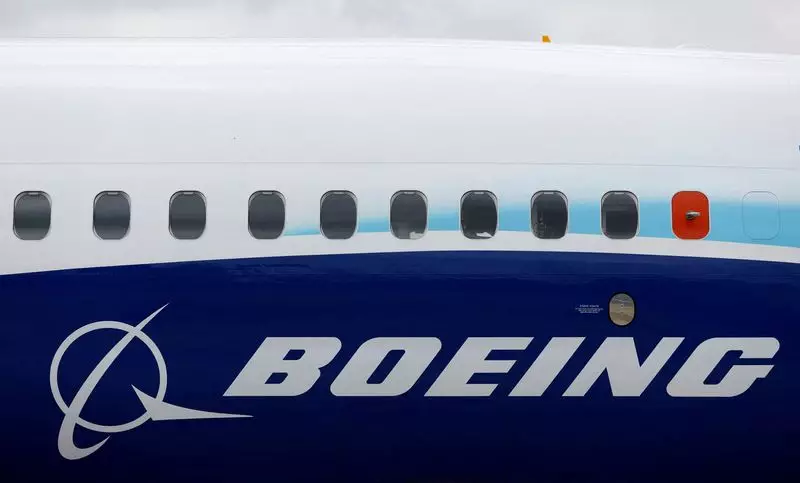In a stark revelation issued on Thursday, Boeing’s leadership painted a grim picture for the aerospace giant as it braces for an estimated fourth-quarter loss of around $4 billion. This anticipated downturn adds to the accumulating woes of a company grappling with a series of setbacks, including production mishaps, heightened regulatory scrutiny, persistent supply chain disruptions, and significant labor unrest from a major strike among factory workers on the U.S. West Coast. As the year comes to a close, Boeing finds itself at a crossroads, with declining revenues and increasing operational difficulties casting shadows over its once-promising trajectory.
The anticipated quarterly loss translates to a staggering $5.46 per share, marking a steep departure from the analysts’ forecasts, which had estimated a much milder loss of $1.84 per share. Following the bearish projections, Boeing shares experienced a 3.5% dip in after-hours trading. The company’s expected revenue of $15.2 billion also falls short of the $16.27 billion that market analysts had anticipated. Such disheartening figures reflect not only the immediate operational challenges but also signal broader implications for investor confidence and market perceptions moving forward.
In stark contrast to its position just a decade ago, when Boeing enjoyed record-high profits during the 2010s, the company’s fortunes have fluctuated dramatically. The catastrophic crashes of its high-profile 737 MAX model ignited a crisis of confidence within the operations of the company, revealing gaps in safety and production quality that have since plagued Boeing. These incidents catalyzed a series of financial repercussions, with Boeing struggling to regain its footing amid mounting losses, hitting nearly $12 billion in 2020 alone—the highest in its storied history. The challenges were further exacerbated by the global COVID-19 pandemic, which inflicted severe operational constraints and demand pitfalls on the aviation sector.
Adding further complexity to Boeing’s already precarious situation was the crippling strike involving over 33,000 workers. This labor dispute resulted in a substantial halt of production lines for key aircraft models, notably the 737 MAX, 777, and 767. The ramifications extended beyond immediate revenue loss, embedding additional uncertainties into Boeing’s operational efficiencies. CEO Kelly Ortberg, newly at the helm since August, acknowledged these “near-term challenges” yet expressed cautious optimism that significant steps have been taken to stabilize operations, including a labor agreement that resolved the strike and a substantial capital raise amounting to over $20 billion.
Reflecting on the state of Boeing’s commercial aircraft division, delivery numbers tell a troubling story. In the past year, the company successfully delivered 348 jets, down from an impressive 528 the previous year, stressing the pronounced impacts of ongoing supply chain disturbances and labor issues. Furthermore, Boeing’s order intake for 2024 has plummeted to less than half of its previous year’s total, despite occasional highlights, such as securing a significant order from Turkey’s Pegasus Airlines, which chose Boeing over Airbus for the acquisition of 100 737 MAX planes.
Simultaneously, Boeing’s defense sector has its share of burdens, accumulating pre-tax earnings charges projected at $1.7 billion across its various fixed-price programs. Challenges such as delays on the T-7 training aircraft and issues within the KC-46 tanker program, exacerbated by last spring’s strike, exemplify the critical hurdles faced in this domain and threaten to undermine confidence in the company’s defense capabilities.
Boeing stands at a precarious juncture as it endeavors to navigate myriad challenges that stack against it, from erratic financial performances and labor issues to increasing scrutiny from regulators. The path forward will require not only a reevaluation of operational strategies but also a recalibration of stakeholder communications to restore faith in the company’s long-term outlook. While CEO Kelly Ortberg has voiced a commitment to stabilizing the company, whether these measures will suffice to reverse Boeing’s ongoing losses remains an intricate question that will no doubt loom large in aerospace discussions in the year ahead.

